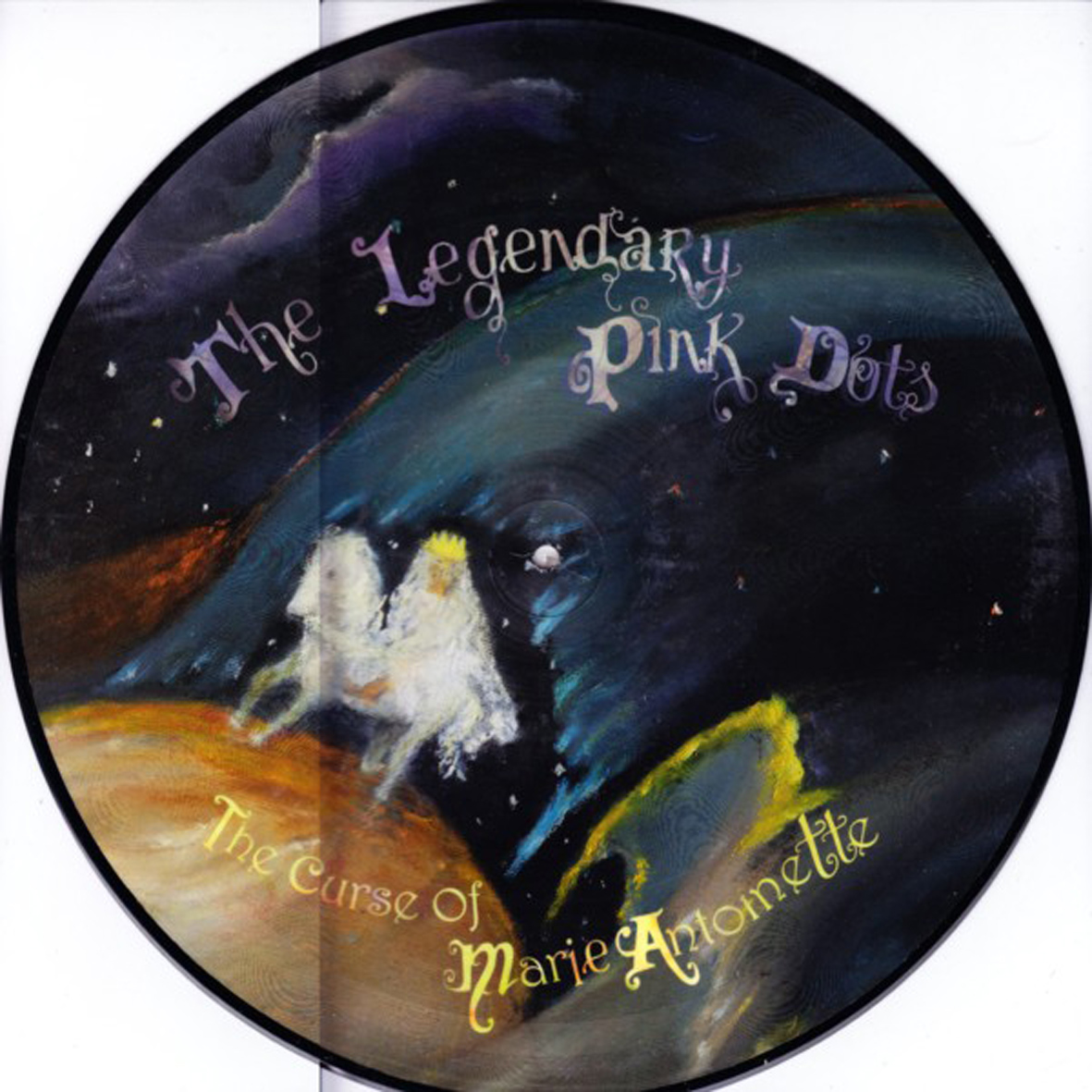Legendary Pink Dots, "The Curse of Marie Antoinette"
 In typically perverse fashion, LPD bring their wildly prolific year to a close by burying their absolute best material on the second side of an extremely limited Italian picture disc (though it has thankfully now been made available digitally). The first half is not bad either, but the creepily phantasmagoric closer "Ghost of a Summer to Come" is one of the strongest arguments for Edward Ka-Spel's genius in recent memory.
In typically perverse fashion, LPD bring their wildly prolific year to a close by burying their absolute best material on the second side of an extremely limited Italian picture disc (though it has thankfully now been made available digitally). The first half is not bad either, but the creepily phantasmagoric closer "Ghost of a Summer to Come" is one of the strongest arguments for Edward Ka-Spel's genius in recent memory.
The Curse of Marie Antoinette is a concept album in which "a reincarnated witch claims one unwary soul and traps him in another dimension," which basically means that it is more or less business as usual for Ka-Spel and company.  Legendary Pink Dots' albums are always full of strange characters and cryptic themes, so the only real difference between this album and a "normal" album is that the songs form a narrative arc of sorts.  That ambitious long-form structure takes a while to become clear though, as the album's first half is fairly straightforward by Dots standards.
It is also a bit unpromising and uneven, though not exactly disappointing, as all three pieces boast at least one idea that I like (even if that does not necessarily translate into great songs).  The opening title track, for example, is a somewhat strident and exposition-heavy bit of piano-based chamber pop that unexpectedly dissolves into dreamlike haze around the halfway part.  "Something's Burning" is another song-like piece, but it is much more understated in tone than its predecessor and a bit too slow-moving for my taste.  Most of the individual elements are likable, but there is not much to it: just a plinking percussion loop, some cacophonous noises, a quasi-operatic female vocalist, and Ka-Spel's occasionally compelling vocals.  The side then ends with the nearly 9-minute instrumental "Hallucination 33" and it is Time To Jam.  Though "Hallucination" admittedly boasts a very cool and propulsive bass line, it also features a hell of a lot of wah-wah guitar noodling, which unfortunately makes it a song that I will not be listening to again.  However, it ends in a flurry of (presumably) dimension-shredding abstract noise that is the harbinger of much better music to come.
The droning, minimal "Catwalk" opens the second half in impressively deranged and uneasy fashion, as Ka-Spel delivers a beautifully haunting monologue over a bed of space-y noises, minimal synth throb, and an insistent clacking rhythm ("keep your arms stretched wide, friend, because that big, wide world below wants to consume you...whole").  It unexpectedly ends with a rather pretty and shimmering synthesizer coda though, which segues into quite a lovely ambient soundscape ("Ballerina on a Race Paper Leaf").  The album then concludes with the tour de force of the aforementioned "Ghost of a Summer to Come," which is easily among the best of Ka-Spel's monologue/soundscape pieces.  For one, the underlying music is wonderful, sounding distant and deeply warped and providing just enough coloration make even Edward's early description of the protagonist's picnic preparations sounds disturbing.  From there, it only gets better and better, unfolding into a flawlessly executed, blackly funny. and utterly mesmerizing tale of dawning horror.
I think I have been sufficiently conditioned at this point to never expect an entirely flawless album from Legendary Pink Dots, as regular over-indulgences and misfires are inevitable when a band is in a constant state of evolution and experimentation.  The Dots come admirably close this time around though, as The Curse of Marie Antoinette is at least half of a perfect album, sustaining unwavering greatness for over 20 minutes once it truly gets rolling.  Also, I suspect that many LPD fans will enjoy the album's first half much more than I do (particularly those who do not share my extreme antipathy towards guitar solos).  In any case, Marie Antoinette delivers three wonderful new songs, one of which ("Summer") is not just essential by LPD standards, but is one of the finest pieces recorded by anyone this year.
 



